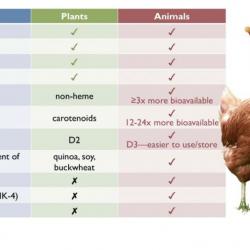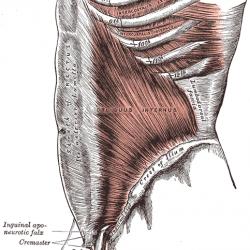The Role of Forgiveness in Addiction Recovery
Dealing with addiction is an incredibly intricate battle, influencing not only the individual struggling but also those who care about them.
It's this unyielding hunger to rely on substances despite the havoc it wreaks on relationships and overall well-being. It's undeniably difficult.
However, you know what? Forgiveness in addiction recovery is monumental for healing and overcoming addiction.
Let's dive into how welcoming forgiveness can genuinely positively influence addiction recovery!
Understanding the Connection Between Addiction and Forgiveness
Understanding the connection between addiction and forgiveness is vital for anyone starting their journey to sobriety.
Addiction can cause harm to ourselves and our loved ones, resulting in a cycle of guilt and shame that perpetuates the addictive behavior.
Here are a few examples of how addiction damages relationships:
- Breaking trust through lies and deception
- Neglecting responsibilities and prioritizing substance use
- Engaging in hurtful behaviors toward loved ones
- Straining communication and emotional connection
- Financial strain and instability
By acknowledging these consequences of our addictions, we can begin to rebuild relationships and work towards healing.
Forgiving Others: A Step Towards Healing
As someone going through the battle of addiction, you might have experienced hurt from others that contributed to your substance abuse.
This could be due to neglect, abuse, or other forms of mistreatment. Holding onto these grudges can keep you trapped in a cycle of anger and resentment, which can further fuel your addiction.
Here are some tips to help you forgive others:
- Understand that forgiving doesn't mean approving of what was done to you.
- Accept what happened and acknowledge that you can't change the past.
- Make a conscious decision not to let it control your present or future.
- By forgiving, you liberate yourself from the chains of bitterness and create space for healing and growth.
Remember, forgiving is a powerful act of self-care and allows you to move forward on your journey to recovery.
The Importance of Self-Forgiveness in Addiction Recovery
When it comes to addiction recovery, it's crucial to not only forgive others but also remember the importance of self-forgiveness.
This journey can often make you feel overwhelmed by guilt and shame for the harm caused to yourself and others.
However, it's necessary to remember that everyone makes mistakes. Letting go and forgiving yourself is an essential part of the healing process.
Here are some key points on how to forgive yourself:
- Acknowledge your wrongs and take responsibility for them.
- Make amends where possible, seeking to repair the damage caused.
- Let go of guilt and self-condemnation. Accept that you are human and that mistakes are part of life.
- Use your past mistakes as stepping stones towards a better future. Learn and grow from them.
- Embrace the liberating act of forgiving yourself. It allows you to discharge negative emotions and beliefs.
- Cultivate self-love and respect. This journey is about healing and rebuilding your self-esteem.
- Let forgiveness inspire you to make healthier choices and create a brighter future.
Remember, self-forgiveness is a powerful tool in your recovery process. Embrace it and believe in your ability to heal and move forward. You deserve a better future.
Effective Strategies to Earn Forgiveness from Others
Recognizing the harm you may have caused others and seeking their forgiveness is also crucial.
But let's face it, forgiveness isn't always a walk in the park, especially if someone has been deeply hurt. So, how can you navigate this process? Here are a few steps you can take:
- Take full responsibility for your actions and genuinely express remorse.
- Make amends and do whatever it takes to make things right. This may involve seeking therapy, joining support groups, or making restitution.
- Give the other person time and space to process their emotions and heal from the pain you've caused.
- Listen actively and empathetically when they are ready to talk. Validate their feelings and take accountability for your actions.
- Understand that forgiveness is not immediate. It's a gradual process; the other person may need time to work through their emotions before forgiving you.
- Show consistent change and growth. Remember, actions speak louder than words, so make sure your efforts to become a better person are genuine and ongoing.
At the end of the day, it's the person you've hurt who gets to decide whether or not to forgive you.
It's crucial to respect their boundaries and keep working on yourself, regardless of what happens.
Forgiveness is a precious gift that can't be forced or demanded. Just keep focusing on healing and boosting your self-esteem.
With time, you'll be able to build healthier relationships based on trust and mutual respect. It might be challenging, but don't give up! Believe in yourself and your journey to recovery.
Embrace Forgiveness in Addiction Recovery Journey with Thrive Treatment
We acknowledge forgiveness's crucial role in addiction recovery at Thrive Treatment.
It's a powerful device that liberates you from guilt, shame, and resentment, paving the way for healing and personal growth.
Whether you're forgiving others who have hurt you or extending forgiveness to yourself for past mistakes, each act of forgiveness brings you closer to your recovery journey.
If you're ready to embark on this transformative path, we invite you to contact us at our drug rehab in Los Angeles.
Our comprehensive programs, including detox, inpatient, IOP, PHP, Outpatient, and sober living, are thoughtfully designed to support you every step of the way.
Allow us to be your partner in reclaiming your life and thriving in your recovery!
More to Read:
Previous Posts:







